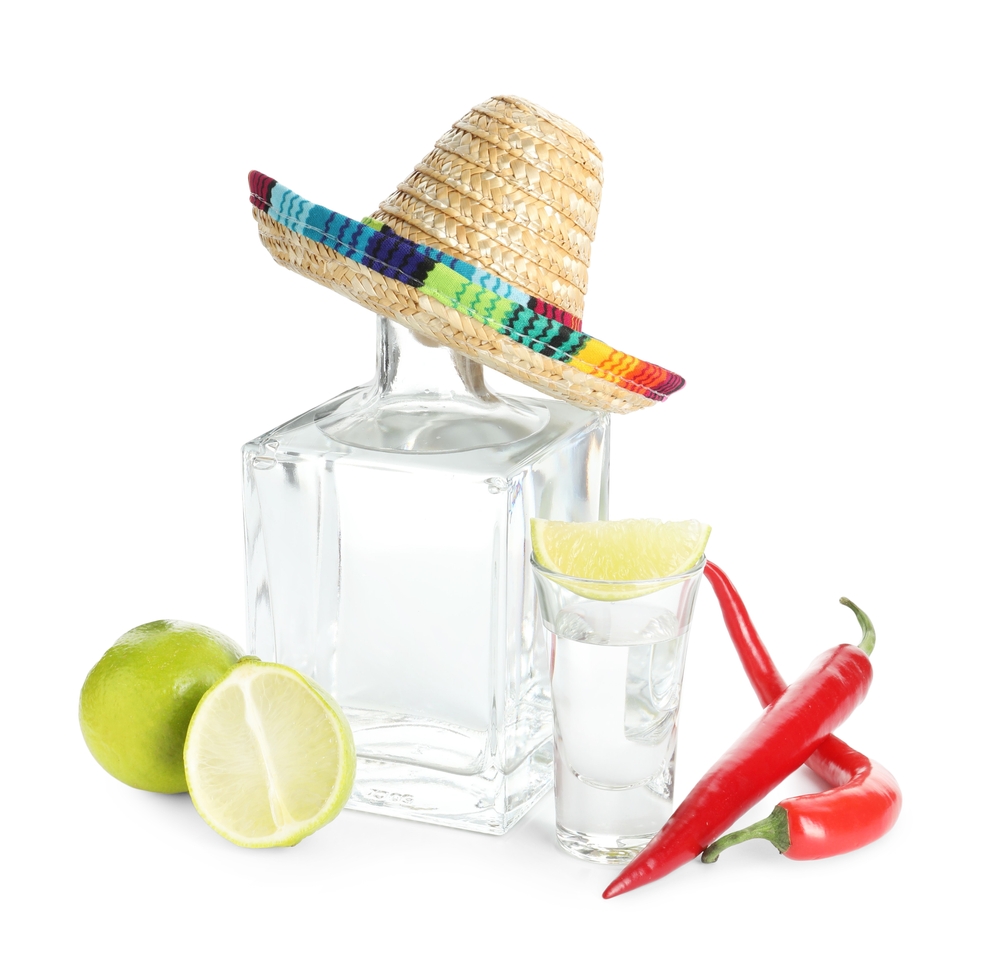Content:
Mexican Tequila is considered a symbol of identity and pride. Its history dates back to pre-Hispanic times when the natives made fermented drinks from agave. With the arrival of the Spanish, the technique of distillation was introduced, giving rise to Tequila as we know it today.
The Tequila regions: A mosaic of flavors
Mexico, with its great geographical and climatic diversity, offers the perfect conditions for cultivating agave, the base of Tequila. From the arid lands of Jalisco to the lush mountains of Nayarit, each region contributes its unique touch to the taste and aroma of Tequila.
Tequila is produced in five regions of Mexico: Jalisco, Nayarit, Michoacán, Tamaulipas, and Guanajuato. Each region has its own climatic and geological characteristics, reflected in the taste and aroma of the Tequila produced there.
- Jalisco: The heart of Tequila, Jalisco is the birthplace of this drink and where most of the world’s production takes place. The arid lands and warm climate of Jalisco result in a Tequila with an intense, herbal flavor, and it is also the region where the first Denomination of Origin for Mexican Tequila originated.
- Nayarit: The mountains and coasts of Nayarit provide a unique touch to the Tequila from this region. The humid climate and abundant rainfall result in a smoother and fruitier Tequila.
- Michoacán: Known for its volcanic soil and temperate climate, Michoacán produces a Tequila with a complex and spicy flavor.
- Tamaulipas: Located in northern Mexico, Tamaulipas produces a unique Tequila thanks to its arid climate and proximity to the sea.
- Guanajuato: The mountainous region of Guanajuato produces a smooth and balanced Tequila, thanks to its cool climate and fertile soil.
These five Tequila regions, each with its unique characteristics, offer a diversity of flavors and aromas that captivate palates worldwide. From young and fresh Blanco Tequila to complex and mature Extra Añejo, each type of Tequila provides an unparalleled sensory experience.
An artisanal process honoring mexican tradition
The production of Mexican Tequila is a meticulous and artisanal process that involves the careful selection of agaves, slow cooking, natural fermentation, and precise distillation. Every step of the process is carried out with respect for the tradition and cultural heritage surrounding Tequila.

Categories and Classes of Tequila
There are two categories of Tequila:
- 100% Agave Tequila: Made entirely from the sugars of the blue Agave Tequilana Weber and bottled at the origin.
- Tequila: Made with at least 51% of the sugars from the blue Agave Tequilana Weber, and it can be enriched with up to 49% of other reducing sugars.
And five different classes of Tequila:
- Blanco: Directly from the still, with only its alcohol content adjusted with water.
- Joven: A mix of Blanco Tequila with Reposado, Añejo, or Extra Añejo.
- Reposado: Tequila aged for a minimum of 2 months in barrels or casks.
- Añejo: Tequila aged for a minimum of 1 year in oak or encino barrels with a maximum capacity of 600 liters.
- Extra Añejo: Tequila aged for a minimum of 3 years in oak or encino barrels with a maximum capacity of 600 liters.
What factors influence the Denomination of Origin of Tequila (DOT)?
The Denomination of Origin of Tequila (DOT) is a testament to the quality and authenticity rooted in the rich history of this iconic Mexican beverage. This designation not only certifies the origin of Tequila but also encapsulates a narrative of tradition and legacy, forged under rigorous standards in a specific and delimited region.
The DOT reflects the unique characteristics of Tequila, as well as the commitment and passion of those who produce it, embodying the soul of our land and the identity of its people. Various factors influence the denomination of origin of Tequila, such as:
- Man: The heritage of traditions and skills passed down from one generation to the next. The human touch and expertise are irreplaceable elements in this legacy.
- Climate: Predominantly, the regions experience temperate climates with moderate rainfall.
- Agave: Only the Agave Tequilana Weber (blue agave) species is authorized for Tequila production.
- Soil: The soils have a variety of textures, generally with a pH ranging from 5.5 to 7, and contain an average of 2.5% to 4.9% organic matter.
An anniversary to celebrate the passion for Mexican Tequila
In 2024, the 50th anniversary of the Denomination of Origin of Tequila is commemorated, a recognition that has helped preserve the quality and authenticity of this emblematic drink. This anniversary is an occasion to celebrate the passion and commitment of Mexican Tequila producers, who have dedicated generations to keeping the tradition and legacy of this exceptional beverage alive.
A gift from Mexico to the world
Mexican Tequila is more than just a drink; it is a symbol of culture and tradition. Its artisanal production and unique flavor have made it one of the most popular drinks in the world. In this 50th anniversary of the Denomination of Origin of Tequila, let us celebrate the passion and commitment of Tequila producers who have dedicated generations to preserving the quality and authenticity of this iconic beverage.
Tequila is a gift from Mexico to the world, an expression of its culture, history, and people. From its pre-Hispanic origins to its artisanal production, Tequila is a reflection of the passion and ingenuity of the Mexican people. We raise our glasses to Tequila, an elixir that connects us to the history, culture, and tradition of Mexico. Enjoy Tequila responsibly and let yourself be captivated by the magic of this iconic beverage.


